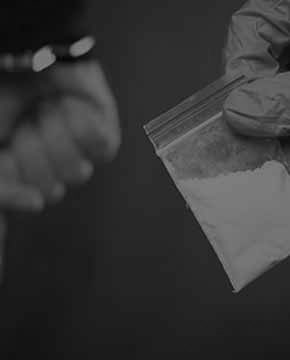












 Author:
Author:
Kimberly J. Benjamin, Founder & Managing Attorney
Published: December 6. 2019.
Updated: January 25. 2023.
Drug Court Missouri
Many people convicted of drug crimes suffer from serious substance abuse issues.
Sending these offenders to prison or jail is not nearly as effective as treating the underlying substance abuse problem. Fortunately, certain non-violent drug offenders in Missouri can avoid incarceration by participating in a specialized drug court program.
Here’s how drug courts work:
Who is Admitted Into the Drug Court Program?
As per Missouri drug laws, defendant cannot enter the drug court program unless a prosecutor has referred him. The defendant will then enter a screening process to determine eligibility. This program is only available to adults with substance abuse problems who face non-violent felony charges.
What Should Defendants Expect During the Drug Court Program?
Acceptable Defendants must comply with some rules while in the drug court program. Throughout the program, participants must undergo substance abuse treatment and counseling.

Participants are also expected to comply with random drug test requests and maintain employment or stay in school. In addition, they are required to make frequent court appearances to update the judge on their progress in the program.
Each defendant is closely supervised throughout the program. This ensures that each defendant gets the individualized help they need to overcome their substance abuse issues and meet their personal goals.
How Long is the Drug Court Program?
The drug court program consists of different phases. Defendants must complete all requirements in one phase before moving on to the next. So the exact time it takes to make it through the program varies case-by-case basis.
However, Missouri drug possession laws state that defendants must stay in the program for at least one year and complete it within two years.
What Happens After the Program is Completed?
If a defendant makes it through the drug court program, the criminal charges against them will be dismissed. This means the defendant can move forward without a criminal conviction on his record.
But, if the defendant fails to comply with the terms of the program, the judge can terminate their enrollment and impose other legal penalties.
Drug court has been extremely successful in reducing crime and helping offenders beat their addictions. Drug courts have been reported to be more effective in reducing crime than jail, prison, probation, and other sentencing options.
Missouri Drug Paraphernalia Laws
Mo. Rev. Stat. § 579.074 provides that individuals commit the unlawful possession of drug paraphernalia when they knowingly use or intend to use it to create or introduce a banned substance or an imitation drug into the body.
Possession of drug paraphernalia is a criminal misdemeanor that normally does not carry the possibility of jail time.
The offense is a Class D misdemeanor under Missouri law, for which you can be required to pay a $500 fine. You also will have a drug-related criminal conviction on your record that will show up during criminal background checks.
However, unlawful possession of drug paraphernalia increases to a Class A misdemeanor for anyone who has had a previous conviction for any drug-related offense, either in Missouri or another state.
Furthermore, it is a Class E felony offense if the person uses or possesses with intent to use the paraphernalia to manufacture or otherwise prepare amphetamine, methamphetamine, or any of their analogs.
A Class A misdemeanor can result in a jail sentence of up to one year and a fine of up to $2,000. However, a Class E felony conviction can result in a prison sentence of up to four years.
Furthermore, Mo. Rev. Stat. § 579.076 establishes the offense of unlawful manufacture of drug paraphernalia.
This offense occurs when a person unlawfully manufactures drug paraphernalia with intent to deliver when they know or reasonably should know it will be used to create or introduce illegal drugs or imitate the same in someone’s body.
This offense is also a Class A felony unless it is done for commercial purposes, in which case it is a Class E felony. All drug-related criminal offenses can result in serious consequences.
Penalties For Missouri Drug Possession
First-time offenders will not face jail time for having 10 grams or less of marijuana in their possession; however, they will face up to $500 in fines.
Jail time is possible for first-time offenders with over 10 grams but less than 35 grams of marijuana. First-time offenders in this situation can face up to 1 year in jail plus $2,000 in fines.
The penalties are far more serious for first-time offenders charged with possession of more than 35g of marijuana or possession of any other banned substance. These are class C felony crimes, so incarceration is a genuine possibility.
The maximum sentence for a Class C felony is 7 years in prison, in addition to a $10,000 fine. But fortunately, first-time offenders typically do not receive the maximum sentence.
Distribution of a controlled substance (except for less than 5g of marijuana) is a Class B felony punishable by up to 15 years of imprisonment. Distribution within 2000ft of a school (except for less than 5g of marijuana) is a Class A felony that attracts life or 30 years imprisonment.
Treatment vs. Incarceration
Many first-time offenders are allowed to complete a drug treatment program that allows them to avoid incarceration altogether.
This program is only available to non-violent offenders found guilty of a felony drug crime or have a drug problem that caused them to be charged with a non-violent felony crime.
During the program, first-time offenders must submit to random drug testing, attend counseling, participate in vocational programs, and make scheduled court appearances. Offenders who make it through the entire program without violating rules will not spend time behind bars.
This is the preferred sentence for offenders since it does not involve prison time. However, there’s no guarantee that the court will allow you to enter this program if charged with drug possession.
Contact an Experienced Criminal Defense Attorney
If you are charged with drug possession, you must contact an experienced criminal defense lawyer who can help you fight for your rights.
A knowledgeable attorney will be familiar with the laws and may be able to negotiate a plea deal that would reduce or eliminate jail time. Knowing your legal rights and understanding the potential penalties for a conviction are essential for making the best decision in drug possession cases.
No one should take drug possession charges lightly, even first-time offenders. Hiring an experienced criminal defense attorney is necessary if you face drug charges in Missouri. An attorney will be well-versed in the state’s drug laws and can help you obtain a favorable outcome.






